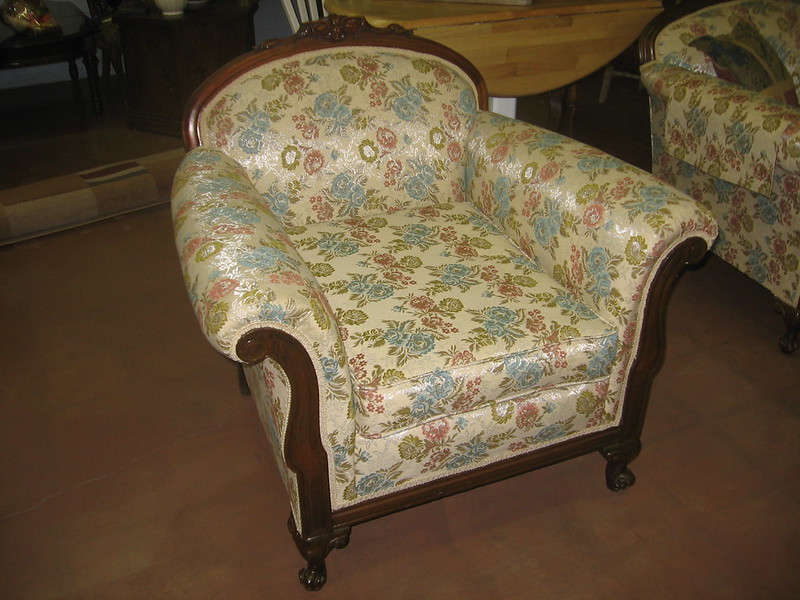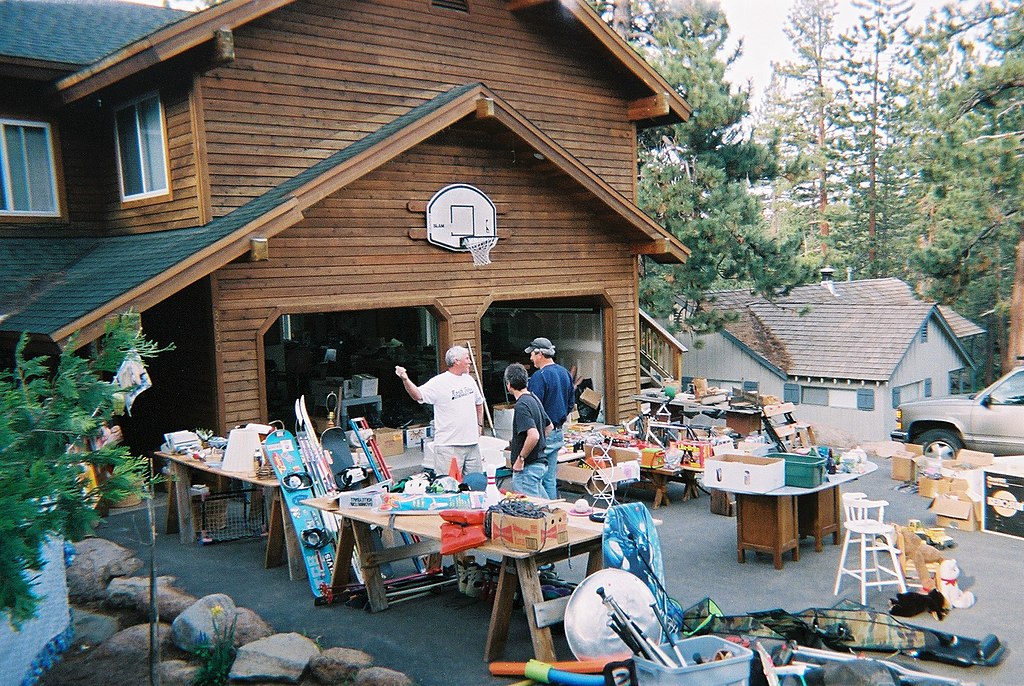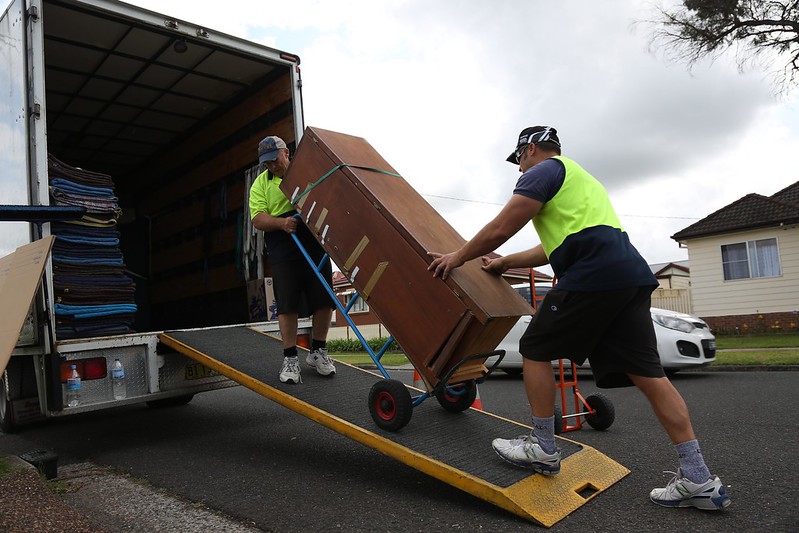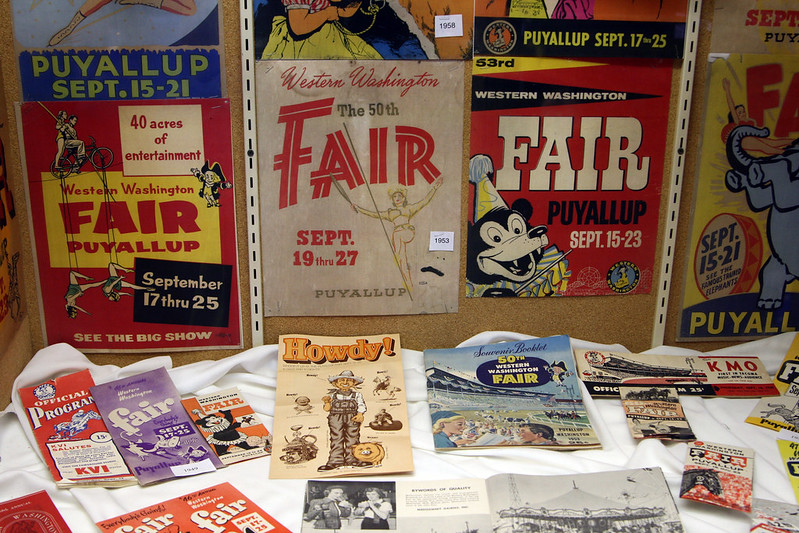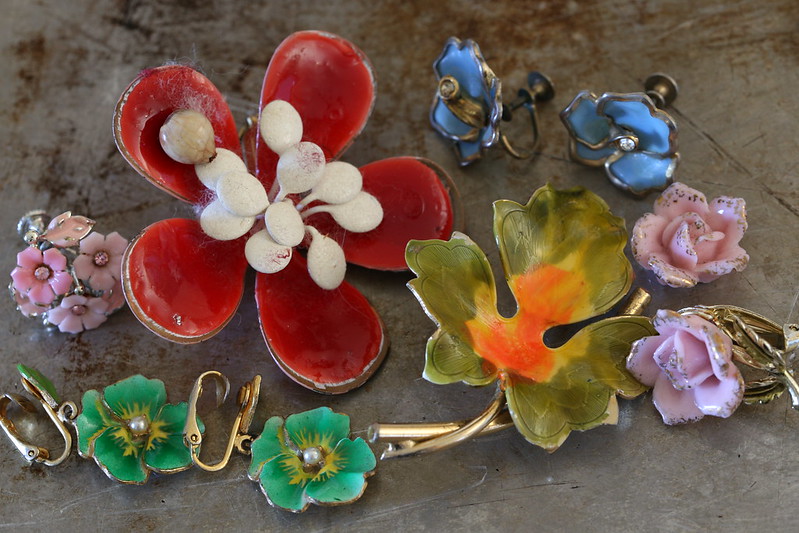Keep, Sell, Or Trash?
Whether you’re selling your own home and moving to a smaller place or are taking care of the contents of a family member’s home, it can seem like an insurmountable task to go through an entire house worth of furniture, décor, and clothing. Sometimes, it might seem like it’s easier to just call up a full-service junk removal company to haul it away—but there may be items in your possession that are worth far more than you think.

The Venues
Depending on what you’re dealing with, there are many avenues you can take to sell off a large amount of items at once or piecemeal. There’s estate sales, selling items on consignment through an auction house, using a platform like Facebook Marketplace or craigslist, consignment stores, or simply donating the items—to name a few.
We’ll get into the pros and cons of these, but there are some general rules to tackle first.
Adjust Your Expectations
When I worked at an auction house, we often had people approach after a family member died, hoping we could sell the contents of their home. We’d often look through pictures and have to break it to them that we could only accept a handful of things for consignment, and at a value much lower than they anticipated.
Although you may think you have a good idea of what something is worth—there might not be anyone out there who wants to buy it at that price.
 Ravenelartgroup, CC BY-SA 4.0,Wikimedia Commons
Ravenelartgroup, CC BY-SA 4.0,Wikimedia Commons
Put Your Trust In The Experts
Auction houses employ certified appraisers who can give you an estimate of what an item will sell for before you decide to put it on consignment (more on that process later). They may seem choosy. Though there are companies that do content sales where they accept every item from a home, many auction houses have established clientele—and they try to only accept items for consignment that they know they can sell.
 Fars Media Corporation, CC BY 4.0, Wikimedia Commons
Fars Media Corporation, CC BY 4.0, Wikimedia Commons
Forget What You Know About Value
While vintage and antique furniture and décor were once a solid bet—and a profitable industry—the market has changed a lot in the past two decades. Prices for many items, especially furniture, took a huge dive during the 2008 recession and never recovered. Think of how many thriving antique stores there were in the 1990s—so many are gone now.
But that doesn’t mean everything lost its value.
Fewer Items, Better Items
As older folks downsize and younger people opt for more contemporary styles of furniture and décor, there’s a glut of older items on the market—and there’s not always a demand for it. Unless you happen to have items of an extremely high quality or of a style that’s in high-demand (like mid-century modern), it might not be worth it to sell through an auction house or consignment service.
The Dos And Don’ts
When evaluating how and where to sell the contents of a home, there’s the option of venues, as mentioned above—but for each one, there are pros and cons as well as dos and don’ts. It’s important to know these in advance so you can make the right choice for your unique situation.
Estate Sales
The expectations for estate sales across the country differ. Some are highly-organized, hotly-anticipated events that draw line-ups and have a slew of employees overseeing them—and others are glorified indoor garage sales. What we’re talking about here is more like the former, not the latter.
What Is An Estate Sale?
With an estate sale, you’re getting rid of a substantial portion or the entire contents of a home at once. Generally, it’s helpful to contract a professional firm or professional liquidators to undertake the sale. Local permits may need to be applied for, or sales tax may need to be collected, and they can help with this.
Estate sales may be an option you explore for yourself—or they may be mandated by the person’s will, or by the courts when dividing assets after a death or divorce.
When To Choose An Estate Sale?
If it’s not mandated by a will or the courts, there are two other situations where an estate sale is best. If you are dealing with a home with an unusually high-quality scale of furniture and objects, estate sale organizers have the know-how and marketing expertise to attract the right buyers. If you are on a deadline because the house is being sold, you may not have time to split the contents of a home up between auction, consignment, and private sales, even though that may be the most profitable route—so an estate sale is an easy way to move things fast.
Estate Sales—Why Should You Get Help?
If you are moving or mourning a family member, the prospect of doing a DIY estate sale can add unneeded stress. Professional liquidators will know the local laws surrounding estate sales, have the ability to properly market the sale and attract buyers, and have staff to help with pricing and crowd control, as well as equipment like card readers for payment.
Estate Sales—What To Know When Signing Up With A Professional
Research the local professional liquidators in your area who put on estate sales and look for reviews and testimonials from people who’ve worked with them. They make money by taking a percentage of the revenue for the sale, often between 25% and 50%. Some may also invoice the seller for other fees, which can include marketing materials, security personnel on the day of the sale, and/or refreshments. Know what you’re getting into beforehand so you don’t walk away feeling ripped off.
What Happens Before The Estate Sale?
Employees of the firm as well as any appraisers on staff will visit to assess the value of the items. They may research the market value of more high-ticket items to price them appropriately and they may take photos to use in their research or for their marketing materials. At some point, they will price all the items in the house.
Communicating With The Liquidators
It’s okay to be hands-off, but if you have questions and qualms, it’s important to express them with the liquidators at an early date to avoid conflict later on in the process. You can ask about their process for pricing items, how they plan to market the sale, how much you’ll need to be involved, and about their policy for unsold items.
What Happens During The Estate Sale?
Professional liquidators each have different systems for dealing with crowds and keeping the amount of the people inside the home at once manageable. This may involve different ticketing formats. A set number of people will be let in to purchase items, and then as they leave others will be admitted.
What Happens After An Estate Sale?
Most professional liquidators have clauses that state that they will remove the unsold items after the sale and dispose of them as they see fit. You can negotiate to auction higher-ticket unsold items yourself, or if you’d prefer to donate things to a specific charity. They will also provide a detailed record of items sold and, in many cases, will clean up after the visitors leave.
Keep any records they provide for tax purposes.
Estate Sale—To DIY Or Not?
Though it’s generally advised to go through a professional liquidator for estate sales, there are some cases where you may want to organize your own, especially if the fees are too high. But be aware that what you save on fees, you will most definitely lose in time spent. It’s a taxing and time-intensive operation.
How To Organize Your Own Estate Sale
It will take time, planning, great organizational skills, research, and money to hold your own estate sale—emphasis on time. Start by looking into the process for obtaining local permits for a sale. You’ll also need to research whether you’ll need to charge a sales tax on the items, and how you’ll declare it on your personal income taxes.
DIY Estate Sale: Organization
Start by creating an inventory of items—first as a written list, and then a spreadsheet. You can find templates for this online. Take pictures of higher-ticket items as you go to use in online listings. Mark down conditions and measurements, if you can—especially for beds, dining room sets, and couches. Group items by category (furniture, artwork, clothing, etc); and, if working in a larger home, mark what room each item is in.
DIY Estate Sale: Pricing
Pricing your own items is one of the hardest things to do. Try and leave sentimental attachment at the door—or set aside items with sentimental value to keep. Research the pricing of similar items online, but be aware that eBay prices and auction records can be unreliable. Though you may be tempted to try and fetch the highest possible price for each item, remember that you are pricing things to sell and that you don’t want a houseful of unsold items at the end of the day. People may also negotiate, especially as the day goes on.
Mark your prices on your master inventory sheet once you’ve decided on them.
DIY Estate Sale: Advertising
Though many go the online route, signs, newspaper ads, and notices on community boards still have value when it comes to attracting buyers. Look for local estate sale websites and try putting listings up on craigslist, Kijiji, Facebook Marketplace, and neighborhood groups and apps like Nextdoor.
DIY Estate Sale: Get Everything Ready
Make sure items are clean and that spaces are tidy and well-organized. Office supply and retail supply stores will have a variety of options for price tags—make sure to use string tags or printed price sheets in plexiglass frames for items where adhesive could damage the item. Print extra copies of your master inventory sheet. Try and get some packing paper for fragile items, as well as bags to give out—though most people will bring their own. Enlist family or friends to help with crowd control or checking out buyers.
DIY Estate Sale: The Day Of
Even if you have friends and family helping, make sure to stay close in case someone wants to negotiate, so send someone else out for that coffee run. Keep impeccable records on your master inventory as you go—it’s much easier than marking things down haphazardly and trying to remember what that lamp sold for after the fact.
It can be a long and taxing day, so be patient and take short breaks where you can.
DIY Estate Sale: Unsold Items
If you have a lot of items left over, you may consider having a second sale with reduced prices. If you really want to get rid of things while still turning a profit, consider slashing the prices by 20% to 50% or more. Otherwise, you can either call a junk company to take it all away or a charity service to donate it—or you may want to split the remaining items up between three categories: auction/consignment, online sale, and to donate.
We’ll cover the dos and don’ts of these methods next.
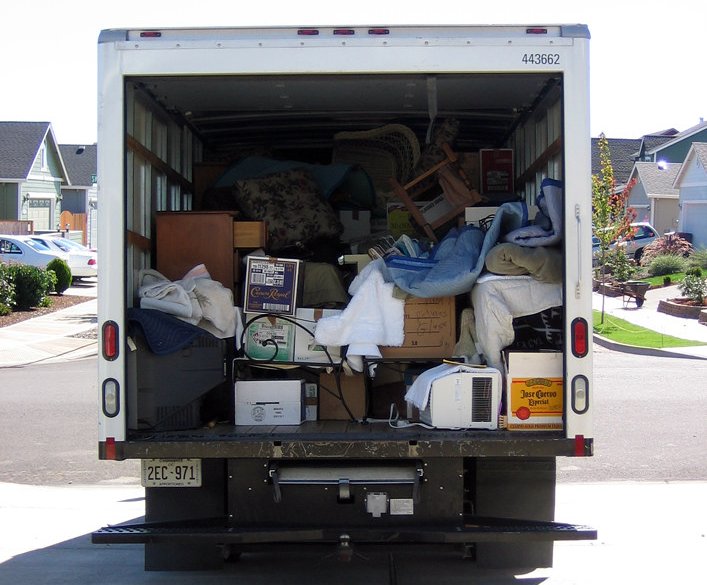 jill, jellidonut... whatever, Flickr
jill, jellidonut... whatever, Flickr
Selling Items At Auction
A lot of the tips for selling items by auction are the same as putting together an estate sale with a professional liquidator. You will be working closely with the auction house, but you also leave a lot up to them. Once again, be sure to research local auction houses. Each may have a different specialty, from art to jewelry to furniture. Read reviews and look into their fee/commission structure.
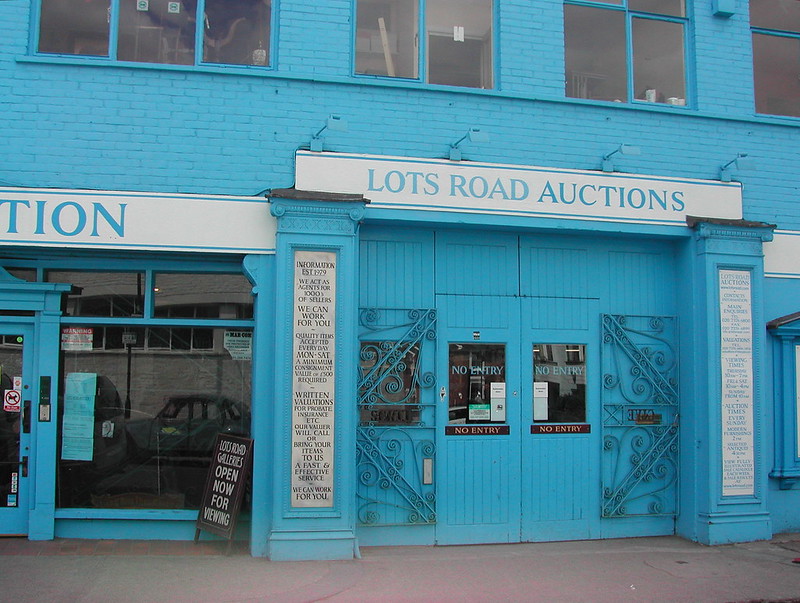 Monica Arellano-Ongpin, Flickr
Monica Arellano-Ongpin, Flickr
Selling At Auction: Contact The Auction House
Do NOT bring all your items to an auction house and expect them to evaluate and expect them for sale on site. No one wants to rent a cube truck and load up a dining set only to be turned away. Auction houses will have forms on their websites or list email addresses where you can inquire about selling items. Put together a list of the prospective items, take high-res pictures, and include notes about condition.
Though they may not expect you to use professional language, detailed pictures or notes about marks and damage will help them give you a proper evaluation.
Selling At Auction: Wait To Hear Back
They will generally get back to you quickly and either ask to come see the items or provide you with a list of what items they’ll accept, though they may not provide estimates until they see the items in person. Once again, if you bring the items in and you don’t like the estimate, you’ll be responsible for taking them back—so keep your expectations realistic or try and get them to give you a ballpark beforehand.
Selling At Auction: Arrange Transport
If you’re bringing in furniture, you will need to arrange transport. If it doesn’t fit in your car, you’ll need to get a truck—but it may be easier to call a transport company than to do it yourself with a U-Haul, where things can get damaged. Contact a company you trust or ask the auction house if they have someone they recommend. Advise them of the time you plan to arrive.
Selling At Auction: Sign The Contract
Once you’re on site, the auction house employees will make a list of your items and explain the terms of the contract. The appraiser will provide an estimate for each item of what they think it will sell for—but it’s not a guarantee. Keep in mind you will be paying a percentage of the sale to the auction house as their commission. You will need to set a reserve, or minimum price for sale.
Selling At Auction: Set The Reserve
A good rule of thumb is: If you have a minimum in mind, make it clear. It should be slightly less than the lower end of the estimate. If you set a reserve and it doesn’t sell, there may be a fee, which could be a percentage of the reserve. But if you 100% don’t want to pick it up at the end of the auction, set the reserve to zero. Often, this guarantees a sale—and no fees to pay.
Selling At Auction: Read The Fine Print
There may be many legal clauses regarding rights and responsibilities in the auction contract. Read it closely. One that is often neglected—and this rule goes for any form of selling—has to do with legal possession. You must only sell items that are yours and yours alone.
For example, if you’re helping an elderly family member, they should sign the contract for sale. Or, if you are in the middle of a divorce and dividing assets, you could get in big trouble for selling an item without express consent.
Selling At Auction: Sit Back And Let It Sell
After the items are on-site and the contract is signed, the rest of the process is pretty straightforward and hands-off. The auction house will put it in an upcoming sale, add it to the catalog, and (hopefully) list the item online so that internet bidders can participate. They may even use it in advertising materials. If your item doesn’t appear in their online listings within a reasonable time frame, reach out and ask about it.
Selling At Auction: Wait For Results
In the days following the auction, you should receive a call or email with the results of your sale, including the sale price and the net price (what you will get after fees and commission). It will contain further instructions on how to receive payment, which is often a cheque. Keep these records for your taxes.
Any unsold items will need to have fees settled and be picked up, usually in a fairly short time frame.
Selling To A Collector Or Reseller
If you’re not selling a bulk of your items at estate sale or auction, you may have individual items that could be considered collector’s items, including memorabilia, designer clothing, fine jewelry, or collector’s collections like comic books, stamps, or coins—to name a few. In this case, you’ll be looking for the right individual to take it off your hands, like an expert, collector, or reseller.
Selling To A Collector Or Reseller: Finding The Right Person
In the case of fine jewelry, research local gold buyers. They will pay you by weight. Vintage or recent designer clothing? Look for local designer consignment shops. For era-specific or in-demand furniture and décor like mid-century modern teak or vintage Le Creuset, look for local resellers who specialize in those items. And for things like stamps, coins, and comics, look for local dealers with experience and knowledge.
It may seem like a good idea to deal with these items yourself and cut out the middleman—and admittedly, sometimes it is!—but if you want a fair price and for the item to end up with someone who will appreciate it, try a professional.
Selling Online
If you find yourself with a manageable number of items that aren’t valuable enough for the above methods but are too valuable to simply donate, you can try selling them online through services like Facebook Marketplace. The key words here are manageable (it’s labor-intensive if you have more than say, 20 items, it’s going to be a chore) and valuable (honestly, if it costs less than $10 or $15, the work you’ll need to put in won’t make it worth it).
Selling Online: Gather Your Info
Make a list of the items to sell on a laptop or cell phone so you can easily copy/paste the description into the listing. Take well-lit photos that are true to the color of the item. Include detailed photos of damage or labels. Note sizing for clothing and take measurements for furniture and decorative objects. Hopefully, once you put those items away, you won’t need to pull them out again.
Selling Online: Making Your Listing
Put all that info into your individual listings for the items, and price them accordingly. You can research what similar items are selling for on Marketplace to get an idea, but keep in mind that buyers will inevitably try and negotiate the price down, so start out by building that into the price. You can always lower it later if no one bites.
Also: be clear about your expectations for pick-up. People may attempt to convince you to meet halfway, or on a subway line if you’re in the city. Set clear instructions on the listing.
Selling Online: Stay Patient
Selling on platforms like Marketplace or craigslist can be a hard and quick lesson about…human nature, to put it nicely. There is a chance, although small, your item will sell quickly and the buyer will be easy to deal with. There is a much higher chance you will get 100 “Is this available” messages from people who stop communicating when you say “Yes”, and a few scammers too.
Be patient and polite, block where necessary, and if the item doesn’t sell within a few days, consider lowering the price.
Selling Online: Keep It Safe, Keep It Simple
The easiest way to avoid scammers is to keep the transaction as simple as possible. Only communicate on the platform you’re selling on. They usually offer seller protections. Don’t give away your email or phone number. No shipping items, and no weird new online payment services or giving away personal information. Try to only accept cash for payments, or, if you’re comfortable with it and have used them before, P2P services like Venmo. Stick to in-person transactions.
Selling Online: Arrange A Safe Pick-Up
Many people are uncomfortable having strangers come to their home. If you do decide to do a porch pick up, make sure you’re not home alone. Give the buyer your general area—say, a nearby intersection, and only provide the address the day of pick up. Otherwise, if you can transport the item by car, suggest meeting in the parking lot of a business that will be open when you meet, like a Target or a Starbucks, and bring someone else with you.
Donate The Rest
If you’ve estate sale-d, auctioned, and online sold the more valuable items from your collection and you still have a mish-mash jumble of things left that you’re not sure what to do with, try to get it all out in one fell swoop and do some good at the same time. Look into local charity shops and church sales. There are also some charities that will do pick-ups of items.
 Jonathan Billinger, CC BY-SA 2.0, Wikimedia Commons
Jonathan Billinger, CC BY-SA 2.0, Wikimedia Commons
Donate Thoughtfully
Just because you get rid of everything in one fell swoop doesn’t mean you should. Donating items that are dirty, broken, or simply junk—like that old, stained spatula—is inconsiderate. Only donate items that you could see selling. Throw out the rest.
And luckily, if we’ve got to this step together, you won’t have anything left to get rid of!




